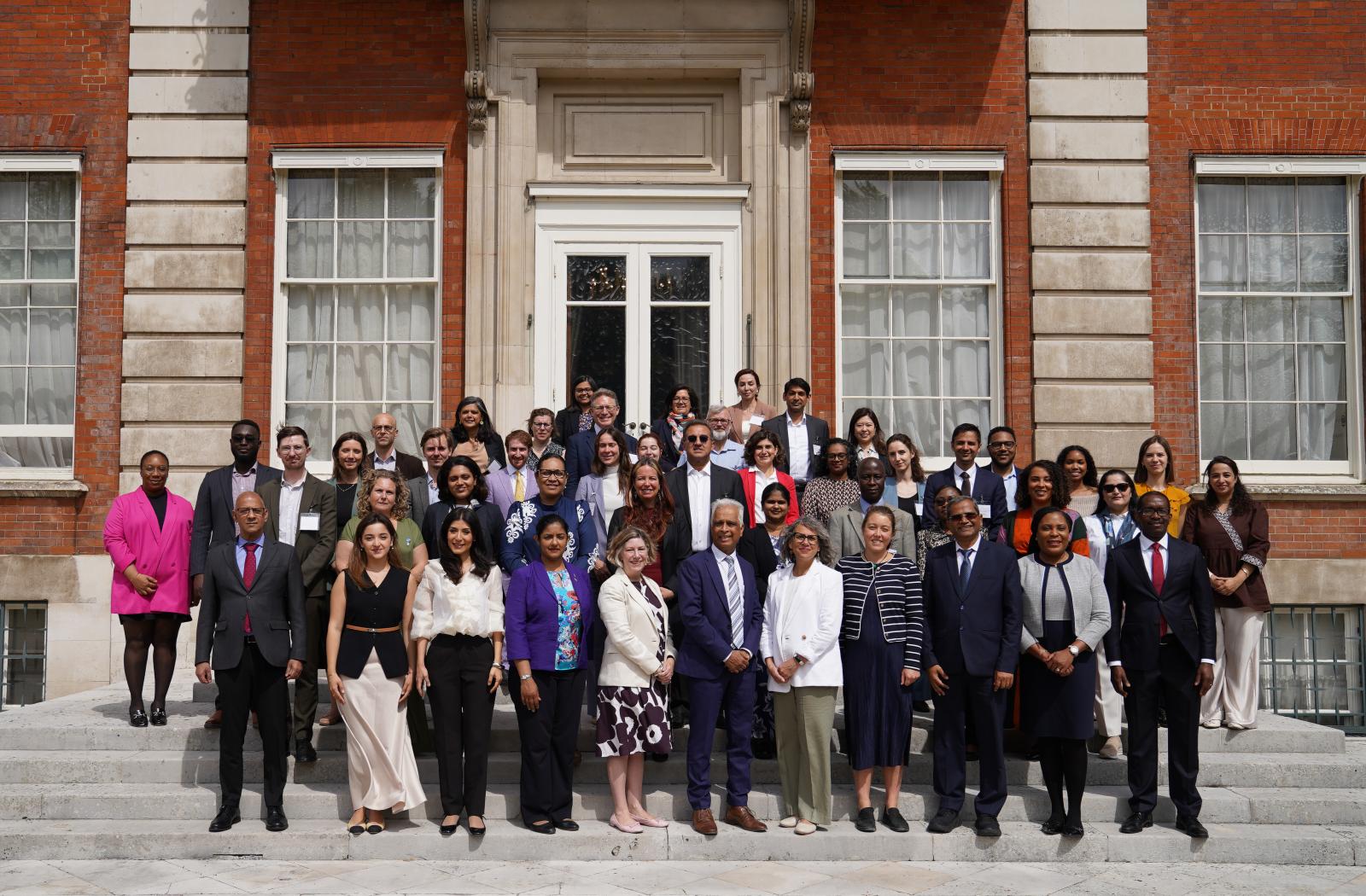Two things separate the Commonwealth Climate Finance Access Hub (CCFAH) from other support mechanisms: its long-term advisory support and capacity-building prowess. Operating in its tenth year, the “Hub” has deployed 40 climate advisers and trained over 3,400 government officials, climate change professionals and young people to navigate the complexities of climate finance.

Commonwealth at the London Climate Action Week
On the side-lines of London Climate Action Week, climate specialists, academics, diplomats, private sector representatives and finance institutions saluted the decade-old CCFAH for its achievements in supporting governments to access climate finance through its embedded climate finance advisers in the governments and institutions they support.
Aurelius Nkonde, Commonwealth National Climate Finance Adviser to the Government of Seychelles, has a dual placement — another innovative Hub approach. For three days a week he is embedded in the Ministry of Agriculture, Climate Change and Environment, and the other two days he spends with the Ministry of Finance, National Planning and Trade.
Joining virtually, he shared his experiences with guests and participants attending the Commonwealth climate finance roundtable at Marlborough House in London. He said:
“This dual placement has enabled a best practice model that ensures that climate policy priorities are fully integrated into fiscal planning and public investment frameworks. Some notable outcomes have been integrating climate change into national sectoral plans, specifically mainstreaming climate change in the National Development Strategy 2024 – 2028, and support towards climate budget tagging guidelines.”
Climate budget tagging is a way to help countries to identify, track and report on climate change in their public financial management systems.
CCFAH and its multiplier effect
Elisabeth Bowes, Australian Deputy High Commissioner to the UK, shared that Australia has been a long-standing supporter of and contributor to CCFAH. She said:
“CCFAH has a multiplier effect because of the important leverage it brings, not only for its catalytic effect, but also capacity building. Last year, Australia was proud to jointly host the first Commonwealth climate youth negotiations training. It is another example of success of the Commonwealth and the Hub: training climate negotiators of the future.”
Looking ahead to the next decade of CCFAH, she recommended increased collaboration with other climate finance advisory networks to increase this multiplier effect, rather than dilute through duplication.
Representatives from the UK echoed this and suggested closer linkages between CCFAH and the Commonwealth Investment Network, launched in Namibia last week during the 2025 Commonwealth Trade Ministers Meeting. This would encourage strategic cross-ministerial collaboration to access better climate finance at a time of great economic uncertainty.
Equipping governments with climate finance capacity
The Commonwealth Secretary-General, Hon Shirley Botchwey, said in a video message that the Commonwealth Secretariat is committed to scaling the Hub’s reach and sharpening its impact. The Secretary-General also said that she is committed to strengthen partnerships with international institutions and donors so that governments are equipped with the tools and skills to unlock climate finance with confidence.
The roundtable was attended by more than 40 government officials, international finance institutions, academia, private sector investors and agencies, as well as development banks, partners and rating agencies.
London Action Climate Week ends on Sunday, 29 June.
The Governments of Australia, Canada, Mauritius and the United Kingdom have supported the operations of the Commonwealth Climate Finance Access Hub over the past ten years.
Flickr Album: Commonwealth Climate Finance Roundtable 2025
Media contact
-
Suné Kitshoff Senior Communications Officer, Communications Division, Commonwealth Secretariat
- M: +44 7740 450 901 | E-mail



